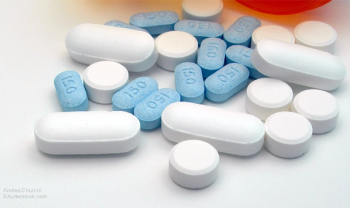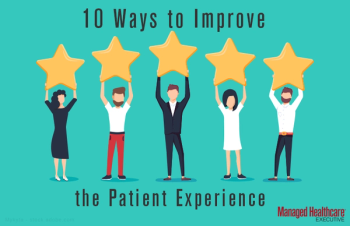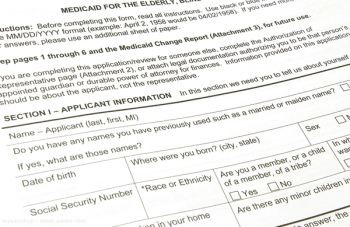
The 2018 oncology drug market had a record number of new treatments and continued a trend of growth.

The 2018 oncology drug market had a record number of new treatments and continued a trend of growth.

A new report shows that the new open enrollment rules are leading to increased Medicare Advantage uptake.

Healthcare costs remain the most important financial problem facing American families, according to a Gallup poll.

The prevalence of diagnosed diabetes in the United States has remained stable during the past eight years, even as obesity rates climb.

New definition of burnout to be included in forthcoming ICD-11.

As Best Buy extends its reach into health technologies and services, a unique opportunity may open up for providers.

In the first of many similar cases, the trial of Oklahoma versus Johnson & Johnson could frame who is to blame for the opioid epidemic.

With a more than $2 million price tag, how are payers going to deal with the recently approved Zolgensma?

The new plan could affect all of healthcare and could radically change contract provider agreements.

What the development means for healthcare.

A majority of healthcare workers are women, but few make it to leadership roles. Here are the surprising reasons behind the gap.

Where plans and patients are spending the most money on medications.

Why hospital pharmacists are playing an increasingly-large role in patient care and why their involvement can boost medication outcomes and reduce errors.

Express Scripts, a Cigna company, plans to launch the industry's first stand-alone digital health formulary.

Surgery shouldn’t be the first step when considering treatment. Analytics can help the determine the best path that leaves patients healthier and payers with fewer costs.

FDA approved some important new therapies, including the first anticoagulant for children, an injectable for diabetic retinopathy, and a treatment for renal cell carcinoma.

Top leaders share simple ways to cultivate patient loyalty.

A new study shows that members who enroll in Medicare Advantage plans may have lower spending.

A new RAND study uncovers significant differences between healthcare costs paid by privately insured patients and those paid out by Medicare.

Offering multiple, segmented approaches to health can confuse consumers-and reduce engagement. Instead, focus efforts on comprehensive solutions.

Healthcare treatment compliance can be difficult for patients facing other issues like unaddressed SDOH problems or mental health diseases. Here are four ways to engage those members.

As pharmacies get deeper into chronic care treatment, what will it mean for both pharmacy and the world of managed care?

As the shift to value-based payment accelerates, successful health organizations can take steps to build an effective quality management program that will improve HEDIS scores and deliver care quality and cost savings.

A proposed policy calling for hospitals to publicly disclose negotiated prices charged for services is drawing ire from some hospitals and insurance companies.

From disruptive technology to regulatory ‘known-unknowns’ to the plight of today’s healthcare consumer, 2019 is shaping up to be a year of extraordinary transformation.

Generic drug makers are defending their practices after 44 US states accused Teva Pharmaceuticals and other pharma makers of conspiring to inflate their prices in a lawsuit.

A new government rule requiring pharma makers to disclose drug prices in television ads will likely create more confusion for consumers, analysts and organizations said.

The United States pays much higher drug prices than other countries. Could reference pricing be the fix?

A new report assesses the viability of new healthcare expansion options with Medicaid insurers.

Managed Healthcare Executive has identified 10 emerging industry leaders, working in the areas of pharmacy, health plans, health systems, and technology.